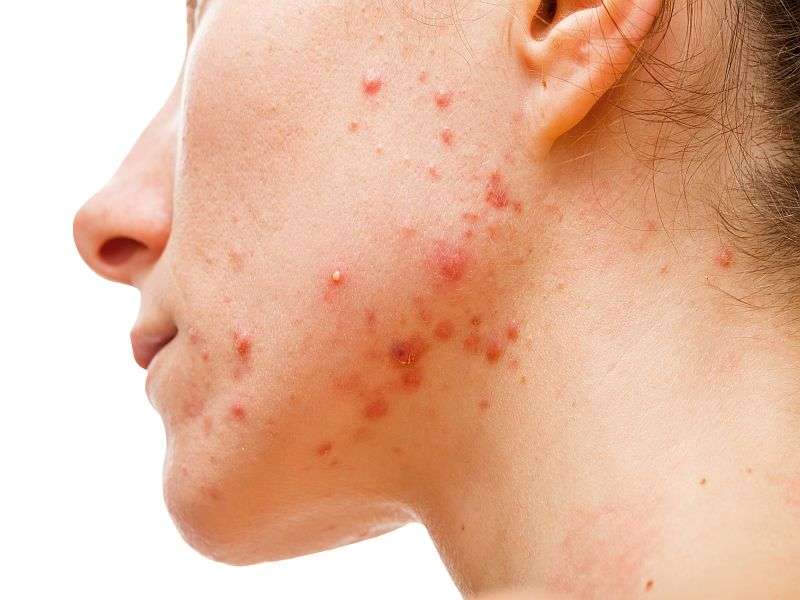(HealthDay)—Patients with acne vulgaris have significantly higher glycemic index and glycemic load levels and significantly lower serum adiponectin levels, according to a study published in the July issue of the Journal of the American Academy of Dermatology.
Asli Aksu Çerman, M.D., from Marmara University Faculty of Medicine in Istanbul, and colleagues examined possible associations among dietary glycemic index, glycemic load, milk consumption, insulin resistance, and adiponectin levels in the pathogenesis of acne vulgaris. Data were included for 50 patients with acne vulgaris and 36 healthy controls.
The researchers found that, compared with controls, patients with acne had significantly higher glycemic index and glycemic load levels (P = 0.022 and 0.001, respectively), while serum adiponectin levels were significantly lower (P = 0.015). An inverse correlation was noted between serum adiponectin concentration and glycemic index (P = 0.049).
"A high glycemic index/load diet was positively associated with acne vulgaris," the authors write. "Adiponectin may be a pathogenetic cofactor contributing to the development of the disease. Further research on adiponectin levels in patients with acne in terms of development of insulin resistance might be important in this possible relationship."
More information:
Abstract
Full Text (subscription or payment may be required)
Journal information: Journal of the American Academy of Dermatology
Copyright © 2016 HealthDay. All rights reserved.























